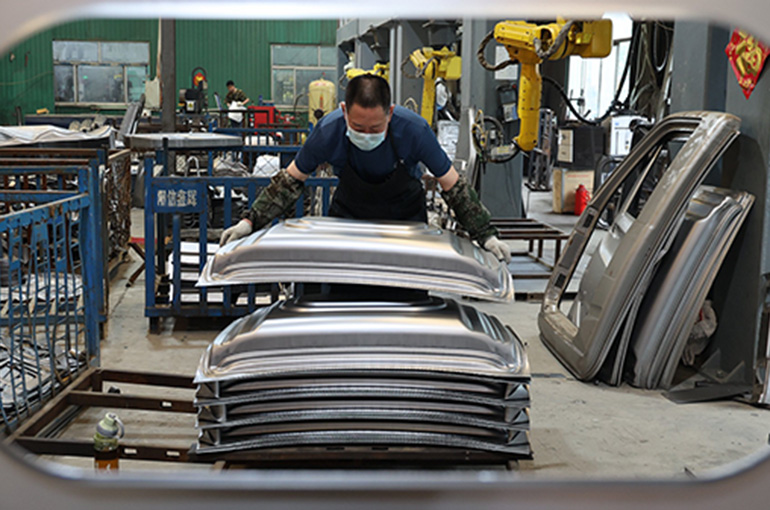 Lingyi iTech, Other Chinese Consumer Electronics Firms Benefit From New Auto Parts Business
Lingyi iTech, Other Chinese Consumer Electronics Firms Benefit From New Auto Parts Business(Yicai) Aug. 28 -- Lingyi iTech and other Chinese manufacturers of consumer electronics have been branching into automotive parts recently in order to tap the booming electric car market and offset a downturn in the sale of mobile phones, personal computers and other consumer electronics. And the investment appears to be paying off.
Lingyi iTech, whose main business is the supply of precision parts for mobile phone makers, posted a 72.4 percent jump in revenue from its car battery parts sector in the first half from a year earlier to CNY713 million (USD97.8 million).
The Jiangmen, southern Guangdong province-based company, which counts US tech giant Apple among its clients, branched into structural parts for batteries in June 2021, when it bought 95 percent of Zhejiang Jintai Electronics for CNY38 million (USD5.2 million).
It has since become an important supplier to new energy vehicle makers in the US and is expanding its product portfolio to include automotive cooling modules and charging products.
Consumer electronics companies that enter the automotive industry can create new growth points based on their core industrial capabilities, said Qin Ruohan, general manager of private equity firm Jinhua Fund Management. The move also helps hedge against slumping sales in their main business.
Smart wearable device maker Lens Technology’s revenue from components for electric cars and smart cockpits soared 54.9 percent in the first six months year on year to CNY2.2 billion (USD313 million). This far exceeded its earnings from other products, such as smartphones, computers and smart headsets.
And Apple supplier Luxshare Precision spent CNY10 billion (USD1.3 billion) in February last year to enter the vehicle manufacturing sector by buying a 19.8 percent stake in carmaker Chery Holdings, 7.8 percent of Chery Auto and 6.2 percent of Chery New Energy.
Optoelectronic equipment maker Ofilm logged a 3.4 percent jump in revenue in the six months ended June 30 from a year earlier to CNY616 million (USD84.5 million).
The vehicle supply chain has high safety requirements, so consumer electronics firms aspiring to enter this field need to invest more to meet automotive-grade standards, said Ye Yindan, a researcher at the Bank of China Research Institute.
It still remains to be seen whether consumer electronics companies can achieve medium and long-term profitability and increase their value, Ye said.
Editor: Kim Taylor